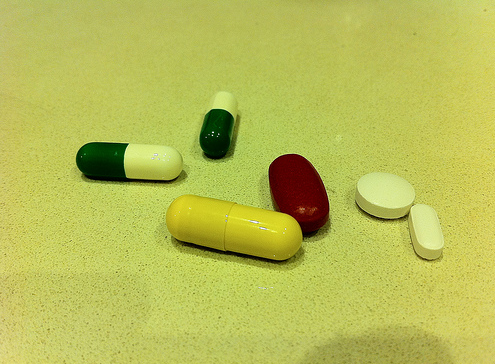This website uses cookies so that we can provide you with the best user experience possible. Cookie information is stored in your browser and performs functions such as recognising you when you return to our website and helping our team to understand which sections of the website you find most interesting and useful.
Chlamydia treatment – the options available
If you’ve been diagnosed with Chlamydia (hub page), there’s no need to panic. Thankfully, modern medicine affords a number of treatment options for individuals diagnosed with the infection that will help get it treated and out of your system.
There are options available for treatment that will suit your requirements. The treatment is likely to be slightly different for everyone but there are some common remedies that will be most likely to be selected as the first line of treatment.
Speedy treatment
No matter what treatment you or your healthcare professional chooses for you and your symptoms (3 Chlamydia Symptoms), it is important to start the treatment without delay. The sooner you start the treatment, the less likely you are to develop secondary symptoms and complications from the infection.
A handful of pills are all it could take to cure the infection
It is incredibly important for anyone who’s sexually active to receive regular testing (4 Chlamydia Tests) for all sexually transmitted infections including chlamydia. While infections can have symptoms that develop over time, the earlier they are caught the more likely it is that the infection can be resolved with few side effects or long-term implications. Chlamydia infections in particular tend to develop symptoms relatively late. Even if you don’t have any symptoms, if you’ve had more than a year of sexual
activity without tests or suspect one of your sexual partners may have had the infection, make sure you get tested and start treatment as soon as possible.
Types of treatment
As a bacterial infection, the treatment for Chlamydia is always antibiotics (5 Chlamydia Medication). However, there are a number of different treatment regimens depending on the individual, their circumstances and their medical history.

The type of treatment will depend on a number of factors
It’s not unusual for Chlamydia to be detected during pregnancy as part of the routine testing that takes place when pregnancy is confirmed. If left untreated, the infection can cause serious complications with the pregnancy and particularly with the birth. Women with Chlamydia infection can pass this on to their babies during birth, usually leading to an eye infection in the new-born which, if left untreated, can lead to blindness in the baby.
Not all antibiotic treatments available for the Chlamydia infection are suitable for pregnant women, which is why it’s important to seek advice before starting any treatment. Once infection has been confirmed or is considered likely following the diagnosis of a partner, the right treatment regimen will be selected for you.
For men, the choice of medication to treat the infection is slightly wider. However, men and women alike can be allergic to particular types of medication that will make the choice of one antibiotic over another more preferable.
The duration and frequency of treatment is also different depending on which type of antibiotic is chosen. The Chlamydia infection is less sensitive to some of the antibiotics used in its treatment, meaning that the course of treatment needs to be longer to ensure that all traces of the infection have been cleared. However, it is sometimes necessary to use these types of antibiotics due to the circumstances of the patients. The most commonly prescribed antibiotic for Chlamydia infection, Doxycycline, is taken over seven days to ensure that the infection has been eradicated completely.
It isn’t usually necessary to get a second check-up after completing a course of antibiotic treatment for Chlamydia. Whichever course of treatment is chosen, it is usually completely effective and no re-testing is required to confirm that it has cleared up. However, due to the potential ill-effects for pregnant women and their babies, the doctor or nurse who recommends the treatment may wish to see you again after to treatment to check that all is well.
Choosing your treatment
Choosing the right treatment for you should be done in consultation with a healthcare professional. A doctor or other trained healthcare practitioner will be able to take your medical history, discuss any symptoms you may have and recommend what is the most suitable type of medication for you.

Different treatment may be needed during pregnancy
Image Source
The right medication will differ depending on a number of factors. Firstly, there are certain medications that are typically more effective that will be used as the first choice for most people. The healthcare professional with whom you consult will be able to recommend a treatment based on any allergies you may have, interactions with other medications or pre-existing health conditions. As suggested above, there are certain types of treatments that are not suitable if you are pregnant or breast-feeding, so you will need to make this clear to your doctor or nurse when you have your consultation.
Starting treatment
If a sexual partner has been diagnosed with Chlamydia, it’s quite likely that your healthcare professional will start you on a course of treatment before the results of your tests are back. This is nothing to worry about.
Most people have minimal if any side effects from the common medications used to treat the Chlamydia infection, while the side-effects of the infection itself can include pain, pelvic inflammation and a number of problems that could affect fertility in both men and women. If left untreated, both male and female sufferers of Chlamydia could develop a complication called Reactive Arthritis, where joints become inflamed causing significant pain.
There are plenty of reasons to take the antibiotic treatment for Chlamydia if it’s offered. Choosing not to do so can be very damaging to your health.
Conclusion
There are several options available for treatment of Chlamydia infection in men and women. These can be tailored to ensure they are most suitable for the individual based on their symptoms, medical history and current circumstances.
If you think that there is any chance that you may have contracted a Chlamydia infection, it is important to get a test as soon as possible and discuss your treatment options with your healthcare professional. Getting the right treatment early and completing the course of antibiotics greatly reduces the chance of going on to develop complications arising from the infection.
Image Credits: Iqbal Osman 1, BeauGiles and Jerome Ware




